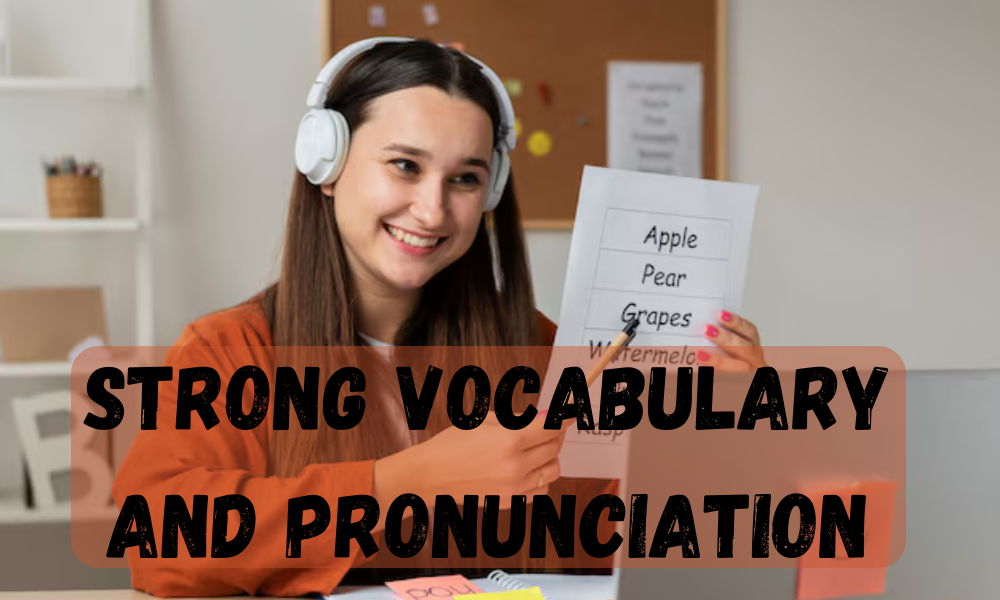How to Speak English Fluently in 10 Days – Step by Step
Introduction
Table of Contents
Toggle
Achieving English Fluently in just ten days sounds very challenging; however, it can be made possible if systematically approached. Spoken English is a very important skill for anyone to progress in their career or enjoy a tour or engage in social settings. Confidence, pronunciation, and grammar are the weak points for several learners, but planning the whole process can help you get to it quicker than you thought possible.
Consistency, in smart learning techniques and daily practice, is what it takes! Devoting more time every day to vocabulary practice, pronunciation, and listening skills will add vast improvements to your spoken English game. Learn how to have real-life conversations, think in English, and repeat the phrases over and over. This repeat run is going to be a big help for you.
This guide takes each step toward fluency and breaks it down into small, manageable tasks for every day. You will start with basic words and pronunciations, followed by grammar and finally real-life speaking practice. Finally, after 10 days, you are on your way to speaking English with confidence without being asked twice.
Fluency is not about perfection; it is about being able to express yourself clearly and effortlessly. A little dedication and the right strategy are all it takes for anyone to brush up on their Spoken English within no time. Stick to this guide and keep yourself motivated, and you’ll find yourself improving rapidly. Are you ready to begin your journey to fluency? Let’s go!
Day 1: Set a Strong Foundation for English Fluency

You need to build a solid foundation from the first minute until you last speak English fluently. The first thing you should do is assess how far you have come. Know where your strengths and weaknesses lie in terms of listening, speaking, reading, and writing. Set realistic and achievable goals for the next 10 days. Realistic goals help you to become focused and motivated during the experience.
Gather appropriate resources to support your studies. Use learning apps and English books, podcasts, and trivia quizzes. Watch a movie or listen to a song or one of the influencers who speak English. All this together should not soak you in the English culture. It lets you absorb words and phrases naturally.
Practice daily. At least one hour to spend listening, reading, and speaking each day. Start with the basic vocab and phrases in a normal everyday conversation. Rather than spend all your time on preliminary grammar rules, try and get into constructing simple sentences. Practicing speaking out loud helps to build confidence even when no one is there.
To engage with yourself, practice short monologues describing your day’s chores or objects near you or making up a fairy tale, preferably short and simple. The more you practice, the easier it gets to speak English fluently for you. Be persistent and challenge yourself day by day.
Day 2: Build a Strong Vocabulary and Pronunciation

Speaking English fluently requires both good vocabulary and proper pronunciation. Try learning 50-100 simple words each day. Learn essential phrases that are used in everyday conversations. Retain these new words with flashcards, mobile applications, word lists, etc. Construct a few simple sentences with these words, which will help you naturally recall them when you converse.
Pronunciation is an important factor in fluency. It is confusing to say most of the words incorrectly, and it develops less confidence. Listen to the natives through audiobooks, podcast sites, or even YouTube videos. Repeat after them, and your pronunciation and accent will improve. Use online pronunciation tools to check word stress and intonation. Record your voice and compare it with the recorded voice of a native speaker. It will help you hone your skills in speaking.
Practice every day the pronunciation of new words aloud. Work with those who use tongue twisters for their clarity and speed in pronouncing. Target troublesome sounds and repeat practice with them. Phonetics, too, helps in figuring out how to pronounce words correctly. However, the best for learning how to pronounce those words is the International Phonetic Alphabet (IPA).
Vocabulary and pronunciation are preconditions for speaking English fluently. Vocabulary builds up communications, while clear pronunciation brings understanding to them. With everyday practice, it becomes noticeable progress. Speak freely, without minding any mistakes. Each attempt gets you closer to fluency.
Day 3: Master Basic English Grammar for Clear Communication

Grammar is required to clearly communicate and thus is a must to speak English fluently. Without the proper application of grammar, sentences would not convey any meaning and create confusion. Grasping just a little bit of basic grammar, like verb tenses, sentence construction, and subject-verb agreement, would go a long way toward making understanding easy. One needn’t memorize the complicated rules; making a good grasp of the basics is really important. Start with the basics of tenses–past, present, and future–so that one can express himself simply and properly. Start with simple sentences before moving into more complex sentences.
Practicing grammar daily through reading, writing, and speaking activities will help with it. You can make use of a website like Grammarly for the corrections of what you’ve observed. Articles, prepositions, and conjunctions will help to make the sentences flow more easily. Listening will keep you in touch with good grammar in a more natural conversant style. Consistent practice helps a person become quite confident about handling English fluently and competently within easy grasp. Keep a diary and write in it short sentences with new grammar rules. Try speaking the sentences aloud and correcting yourself when possible. The goal is to communicate and not to achieve perfection.
Engaging exercises, quizzes, and conversations provide faster learning. Do not think about grammar while talking—freedom will arise from practice. The better you know the golden rules of grammar, the better you can convey your thoughts freely on ethical matters. With practice, you will find yourself speaking English fluently in any situation. Never give up; soon English will start flowing by itself!
Day 4: Improve Listening Skills for Better Understanding

Listening skills have to be developed if one intends to become fluent in English speaking and understand conversations without efforts. Some learners really experience difficulties with spoken English because they are not experiencing any real-life speech models. Start with infusing English audio into your daily life as a first step to improving one’s listening skills. Listen to podcasts, audiobooks, or newscasts to tune into varied accents and paces. You can also watch English movies or series with subtitles to understand new words and phrases. Over time, try to remove the subtitles and depend entirely on listening for comprehension.
Active listening can increase comprehension and fluency. Rather than merely glancing at words, determine their context and phonetics. Shadowing is one of the most effective techniques whereby the hearer immediately repeats what he or she has heard from a speaker. In this way, one forms better pronunciation, rhythm, and intonation. Another exercise involves pausing cassette tapes so that the hearer predicts the exact words a speaker is going to speak next. This, too, improves the ability to process English orally. Write down new words, note them, and use those in your daily conversations for greater vocabulary development.
For the most part, anything that could ever be done to tune the ears for better and improved understanding of what is said will be participating in real conversations. Join English-speaking clubs, engage in discussions on different virtual platforms, and use language exchange applications for interactions with those who speak the native tongue. The more exposure you give yourself to natural speech, the easier it becomes to speak English fluently without stammering. Tackle consistency, huddle your daily challenges, and soon you will find that comprehending spoken English is not a challenge anymore.
Day 5: Start Speaking Confidently with Simple Conversations

The key to gaining fluency is by speaking. So you want to spend Day 5 gaining confidence through simple conversations. Many learners hesitate out of fear of making a mistake. One gains fluency with practice, not perfection. Begin with self-introductions, daily routines, and common phrases. The more you speak, the more it tends to come to you naturally. Daily small talk will help train your brain to think in English.
To work on speaking English fluently there are voice recording apps and also many mirror exercises. Listening to your own talks helps polish the pronunciation and clarity. Online forums for linguistic exchange, or having a partner to speak with can boost your confidence. Practice speaking out loud even when you are alone, and this in time adds to fluency. The aim is to talk without applying a lot of time thinking about grammar. Shadow speakers, repeat dialogues and engage in real conversation. These methods will turn your thoughts into free-flowing ideas.
Refrain from internal translation from your native language while speaking. Instead, pay attention to forming simple sentences directly in English. Fluency gets molded while using English for daily transactions. Try to speak without pausing for one minute; increase the duration each day. By the time you reach Day 5, there will be amazing improvements. With consistent practice reassurance will help you speak English fluently. Keep practicing, and fluency will soon follow!
Day 6: Think in English to Enhance Fluency

Thinking in English is quite a vital technique to speak English fluently with no hesitation. Most learners have difficulties because they translate from their native tongue. These slow down their speech and create grammatical errors. To overcome this, train yourself to think in English. Start with simple sentences concerning daily activities. Talk to yourself about what you see, what you are doing, or what you think will happen next. This practice will gradually give you the feeling that speaking English is the most natural thing to do.
Use word associations to increase vocabulary and build fluency in English. For example, on seeing a “car,” follow it up with English words like “drive,” “road,” or “travel.” Avoid translating those words in your mind into your native language. The more you do this every day, the better it will be for your thinking process. Shadowing is yet another wonderful technique. Listen to some English and repeat their words right after them. It is a good way to improve your accent and speaking speed. Writing a short journal entry in English will also serve to enhance your fluency. Once you are able to express your thought in writing, it becomes easier to speak.
These are also great ways to train the mind through self-talk. Ask yourself questions and provide answers in English. This forms confidence while perfecting sentence construction. Gradually, your brain will linearly spin words into English for you. The more frequently you do this, the easier it becomes to speak English fluently. Think in English; this is a vital factor in success in any language learning. Start from today, and you will see your fluency increasing!
Day 7: Improve Reading and Writing Skills for Better Expression

Reading and writing are very important for learning to speak English well and with confidence. Reading can improve a person’s vocabulary for easier and a more mind-grabbing global understanding of grammar and construction of sentences; in contrast, the new words learned through reading can enhance one’s sense of style. Probably a simple one will do: read an article in a newspaper, a short blog, or a short story out loud. This will help your pronunciation and fluency, developing a more naturally flowing speech. Make a note of difficult words and look them up; try to use them in conversation. Reading regularly builds comprehension and expression.
Writing helps develop the skill to organize sentences and think in English. Make an entry into your journal each day, writing briefly about what you did, what you’re thinking, or what you feel. Referring to articles or books, summarize in your own words. By writing emails, social media posts, and text messages in English, you will get better with your fluency. You can use grammar-checking tools to check for mistakes and rectify them and learn from them. Practice writing mini-essays on various topics so you can express your thoughts with clarity and coherence. This makes you fluent in English by developing confidence and systematic expression. Reading and writing reinforce one another to improve your communication skills. When you practice, expressing thoughts gets fluid. Keep reading, keep writing, and watch your fluency soar!
Day 8: Engage in Real Conversations with Native Speakers

For one to speak English fluently, conversations with native English speakers should be done in real time. Also, engaging in conversations with fluent speakers would give you an opportunity to work on learning their natural way of pronouncing words, expressions, and even sentence structures. This will help you build confidence and stop from freezing while speaking. You can make use of a language exchange app, such as Hello Talk, Tandem, or Speaky, where you can interact with native speakers. Joining English-speaking groups on social media or forums would also give you an added advantage in practice. Nothing will help you better in becoming fluent than regular conversations with people.
When speaking, you should focus on polishing the clear expression of your ideas rather than struggling through with difficult grammar. Never be discouraged by making mistakes; this is how you learn. Listening to native speakers will give you an insight into tone, speed, and accent. Try to repeat after them to work on these aspects. Record keeping of your conversations will give you the chance to be aware of mistakes and also track progress. Practicing in this way makes you more capable of speaking English fluently in real situations.
In the absence of a native speaker, you can practice with fluent nonnative speakers. Role-play authentic settings for confidence-building, such as placing an order at a restaurant or asking for directions. Watching interviews or live discussions also gets you absorbed into the cadence of natural speech patterns. Therefore, the more you rehearse, the more fluent you will become. Consistency and real-world interactions will shorten your speak English fluently journey within 10 days.
Day 9: Handle Difficult Conversations and Public Speaking

Almost, it seems like a required ability for an important public speaking task. But when naturally, most students find difficulties in imparting their thoughts under pressure. The most important thing would be to calm oneself and frame the answer very clearly. Start with constructing a single sentence, then a longer sentence and try to revisit and position the topic before speaking. Using small sentences prevents confusion and makes it easier to avoid hesitation. An active listener will grasp well the queries raised and before answering acts as a self-check. This tends towards better fluency in terms of effectiveness in communication.
It necessitates pronouncing things clearly, managing a moderate pace of utterance, and modulating the pitch of the voice. One can practice speaking in front of the mirror to build up confidence; also, recording oneself might assist this course. Cacophony can be avoided when one listens to and imitates the way in which native speakers have their intonations on the statements. Engage in hypothetical situations where the scenario concerns what you are trying to improve. One of the best ways of doing it is through online debate. Do not be afraid of making mistakes since that helps you internalize sound characters to be able to speak English fluently in course time. This pattern of practicing complex conversations will build one’s confidence in him/her. Fluency is about effective communication and not perfection. Keep practicing, stay patient, and soon, difficult conversations will feel natural.
Day 10: Practice and Maintain Fluency for Long-Term Success

Practice is essential, even after acquiring a good level of fluency in English, to remain fluent. To speak English fluently, create a daily routine. Speak in English, hear English speakers, and read in English. English Writing is a way to sharpen grammar and structure of sentences. The more you put it to use, the more confidence it builds.
Also given is setting the goal for fluency maintenance and improvement. Join online forums and participate in their discussions. Speak every day. Listening to English movies, podcasts, and reading books will expand your vocabulary significantly. Whenever you think about speaking, do it in English, not by translating from your mother tongue. This helps you get back a bit with the time and tones, and your responses will sound more natural.
Record yourself and find out in which areas you should improve upon. Imitate native speakers to develop pronunciation and clarity. Use your phone in English, watch English media, and communicate with fluent speakers. All these little things will contribute.
Fluency is all about consistency in the long run. The truth is, practicing for even just 15-30 minutes daily will turn you into a ‘Fluent English Speaker.’ Just remain patient, keep on trying for as long as you can, and treat all these mistakes as lessons you obtain along your road of growth. And slowly English will find its way into your life!
Start your English fluency journey today! Follow this step-by-step guide and improve communication skills in just 10 days!
Conclusion
Bring back your dawn with a perfect preparation, undergo the 10day course schedule, pour in, and speak English fluently with the dedication and daily work that you put into building it. Don’t forget, accordingly, to work on vocabulary, grammar, listening, and speaking. This can even help in the effective improvement of a communication skill called confidence. Fluency is a journey; therefore, the sole thing to do is keep practicing, remain consistent, and before you know it, English will be like a mother tongue to you.
